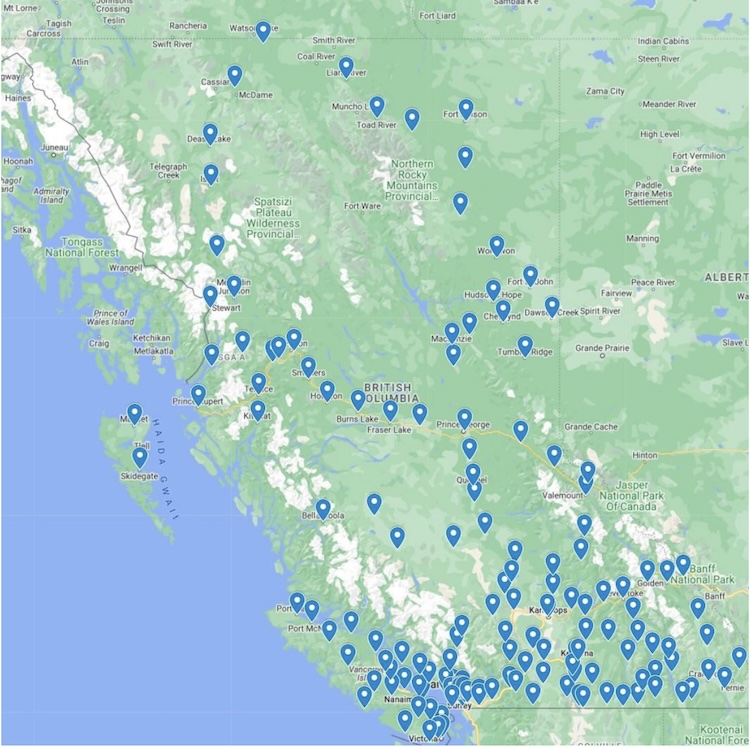Completion of the EV charging network — 310 fast chargers, located every 150 kilometres on major highways — will fulfill a major CleanBC pledge

B.C. is anticipating the completion of its Electric Highway initiative. Photo: Ministry of Energy, Mines and Low Carbon Innovation
Completion of the EV charging network — 310 fast chargers, located every 150 kilometres on major highways — will fulfill a major CleanBC pledge
British Columbia is getting ready to open the last remaining stations in its Electric Highway. The move will mark the completion of an electric vehicle charging network that spans the province from its northern border with Alaska, Yukon and Northwest Territories; south to Washington State, Idaho and Montana; and east to Alberta.
The initiative, set to be completed by the end of this month, will mean that EV drivers will have access to fast charging every 150 kilometres on major roads and highways. The network will comprise of over 310 fast chargers located at 155 charging sites.
“The completion of B.C.’s Electric Highway is a historic milestone in connecting our province and making clean energy more accessible and reliable,” said Josie Osborne, minister of energy, mines and low carbon innovation, in a press statement.
A CleanBC promise
Completing the Electric Highway in 2024 was a key pillar of the province’s CleanBC “Roadmap to 2030” climate action plan published in 2021 (that plan built on the original CleanBC program announced in late 2018). The project cost is being shared between public and private entities with funding largely coming from the province (at least $43 million) and the federal government.

In total, B.C. wants to have 10,000 charging stations in operation by 2030 and is expecting there to be 900,000 EVs on the road in the next decade.
As of August 2024, the province has reached 5,300 chargers with new light-duty EV sales reaching 23 per cent market share in 2023.
“British Columbians are embracing electric vehicles faster than any other jurisdiction in Canada and that’s why we are continuing to make investments for growth within our current system and building out our fast-charging network across B.C.,” said Chris O’Riley, president and CEO of BC Hydro.
Forging partnerships
An essential feature of B.C.’s Electric Highway is partnerships between utilities, municipal and provincial governments, Indigenous communities and the private sector.
The result is a network with certain sites that exemplify equity stakeholders working with one another and providing a blueprint for others.
“We are very proud to share that our hard work over the last two years came to fruition with the commission and completion of the Meziadin Junction EV charging station, the very first DCFC fast charger on Highway 37, located on the Meziadin Wilp Wii Litsxw Indigenous protected area [in northwestern B.C.],” reads a statement from Mark Starlund, general manager of the Meziadin Junction Limited Partnership.
“The best part about this project is that the Gitanyow Hereditary Chiefs retain 100% ownership of the charging station and the carbon credits it generates. This project serves as a case study for First Nations to capitalize on their own EV charging sites.”
In addition, the network is also providing an opportunity for the latest technology to be commercially available.
Next year, BC Hydro says it will begin deploying 400 kW fast chargers that can deliver 100 km worth of charge in three minutes (a vehicle must be able to accept at least a 400-kW charge in order to see these results).
These chargers will fold into the province’s Electric Highway and be available along major corridors.






